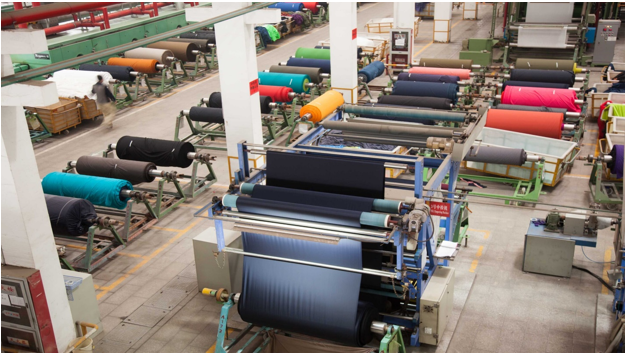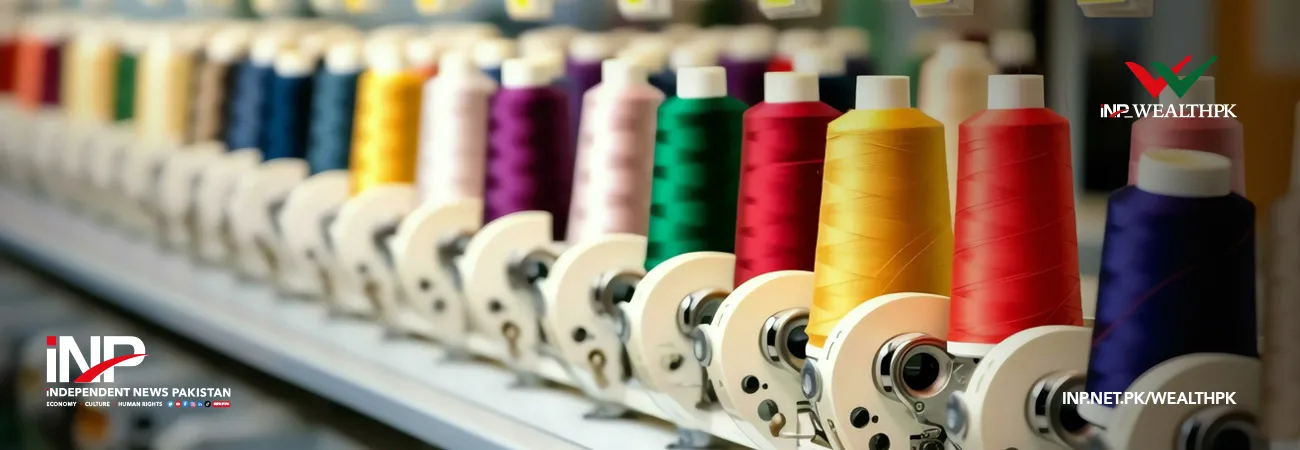i INP-WEALTHPK
Ayesha Saba
The Board of Investment’s focus on business-to-business initiatives and textile cluster development under CPEC’s Phase-II reflects a strategic approach to deepen industrial collaboration with China.

While the opportunities are substantial, addressing structural bottlenecks and ensuring policy consistency will be vital for translating this vision into tangible economic benefits. Recently, the BoI and China National Textile & Apparel Council (CNTAC) signed a memorandum of understanding on cooperation in trade and investment during the Textile Cluster Development Conference in Shaoxing, China. A BoI official told WealthPK on condition of anonymity that the board had intensified its efforts under the second phase of CPEC, placing a strategic emphasis on B2B initiatives to attract Chinese investors.
“Among these efforts, the development of textile clusters has emerged as a key area of focus. Leveraging Pakistan's competitive advantage in the textile sector could significantly enhance industrial cooperation and strengthen economic ties with China,” he emphasised. “Pakistan's competitive labour costs and its geographic proximity to China makes it a natural choice for Chinese investors. Moreover, the development of textile clusters could provide a much-needed boost to Pakistan’s struggling industrial base, fostering employment opportunities and enhancing technological transfer,” the official explained. He highlighted that the initiative had the potential to address Pakistan's trade imbalance with China.
“Currently, Pakistan's exports to China remain modest compared to the volume of imports, leading to a widening trade deficit. By attracting Chinese textile firms to set up operations in Pakistan, the country can enhance its export capacity and diversify its product offerings in the global market. This strategy could also open avenues for Pakistani products to penetrate China’s vast consumer base, which has an increasing demand for high-quality textile goods,” he underscored. The official, however, cautioned that realising the full potential of these initiatives required addressing key structural challenges.
He advocated for a stable and transparent policy framework to sustain Chinese interest and commitment. He also suggested establishing dedicated industrial zones for textile clusters with special incentives such as tax breaks and streamlined regulatory procedures. The BoI official also emphasised the importance of skill development among the local workforce to ensure that Pakistani workers could effectively participate in and benefit from the advanced manufacturing processes introduced by Chinese firms.
Under CPEC, several projects have been initiated to help boost the textile industry. The Textile City Faisalabad, a $1 billion Pakistan-China venture spanning 1,000 acres, boasts facilities for spinning, weaving, dyeing and finishing, creating 300,000 jobs. China Railway is contributing $500 million to the 400-acre Garment City Kasur. Additionally, the 4,500-acre Textile Industrial Park in Faisalabad's M3 Industrial Estate offers comprehensive textile facilities, strengthening the sector's export potential.
Credit: INP-WealthPk









